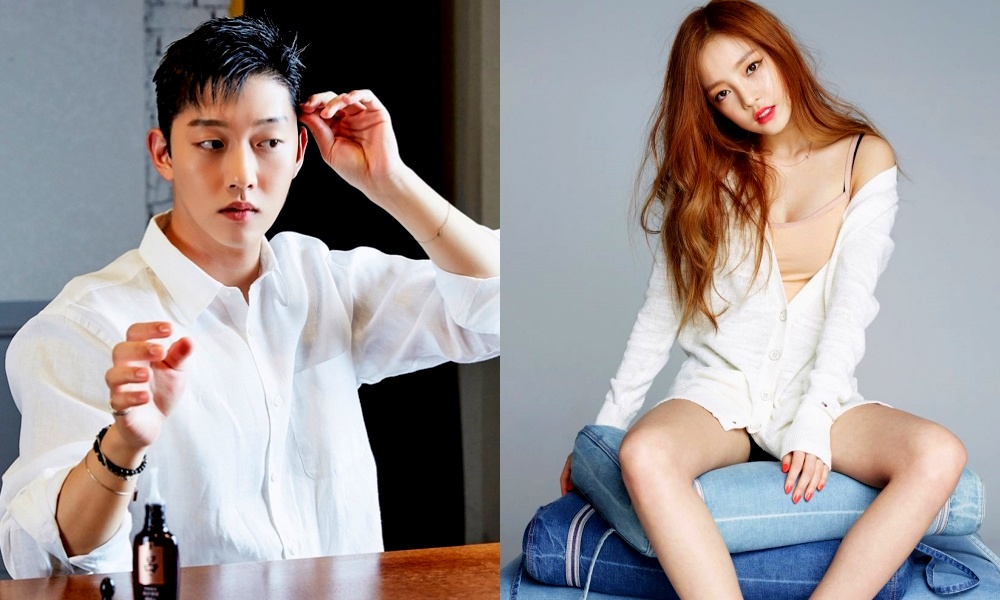RIO DE JANEIRO, BRAZIL – In her last Instagram post, lying on her bed, she looks into the smartphone camera with empty eyes. The words: “Good night.” Less than 24 hours later, last Sunday, the housekeeper found the lifeless body of the k-pop singer Goo Hara in her apartment in the noble Seoul district of Gangnam.
Officially, the Seoul police authorities are still investigating the exact cause of death, but they found a “pessimistic letter” written by the singer on her living room table. For most fans, the case seems clear: “Maybe you couldn’t hear the voices of love and support because the voices of hatred were too loud,” one wrote on Goo’s Instagram account.
In May, the 28-year-old singer, most recently successful in Japan, had already been hospitalized after a suicide attempt. She humbly apologized to her fans afterwards: she was going through a difficult time.
Her private tragedy had been previously widely spread in the South Korean tabloid media: Goo’s ex-boyfriend planned to destroy her career – and threatened to publish joint sex videos. The South Korean woman is seen on her knees in front of the man on a CCTV camera, clearly begging him not to do so.
Some called her a “slut”
When Goo turned to the police and lodged a complaint, she was attacked by an angry Internet mob. Some called her a “slut”; others blamed her for choosing the wrong man.

Not only did she have to endure accusations from her fans, as her label failed to renew her contract during the scandal. And the court sentenced her ex-boyfriend to a year and a half in prison for coercion and blackmail, but the sentence was suspended.
In the statement, Judge Oh Duk-shik stated that the two ultimately had engaged in a consensual sexual relation initiated by the singer.
Goo’s alleged suicide joins a long line of suicides of female K-Pop stars who took their lives in the extremely hierarchical and male-dominated industry. The 25-year-old singer Sulli was found dead in her apartment in mid-October.
As one of the few open feminists in conservative society, she had also suffered from massive cyberbullying. By general standards, her “scandals” seem downright absurd: she posted photos of herself on social media networks which showed a nipple visible under her T-shirt. In conservative South Korea, many men were angry that a woman could dare to appear braless in public.
To the outside world, the K-Pop industry is promoting a glittering world of health façade. With bands such as BTS and Blackpink, the industry is now also enjoying great success outside Asia.
BTS, for instance, is currently regarded as the world’s most popular boys band, with three albums at the top of the US billboard charts in just twelve months. Before them, only the Beatles and – also in the 1960s – the pop rock band The Monkees had achieved this.
But behind the scenes of the K-Pop industry there are deep abysses: As early as in their teenage years, the artists signed gag contracts with their labels, which exerted a massive influence on their private lives.

Women in particular must fulfill the rigid moral standards of Confucian society in South Korea: Romantic relationships must not be made public, political statements must be omitted, and cosmetic operations for a flawless appearance are tacitly expected. Any potential scandal can mean the end of a career – and k-pop singers in South Korea frequently trigger a storm when they post something on social media about feminist work.
Paternalistic structures of the South Korean entertainment industry
The fact that young women are particularly susceptible to sexual exploitation is also favoured by the paternalistic structures of the South Korean entertainment industry. “Labels treat their bands like consumer goods right from the start. They definitely don’t want to get into a situation where a band becomes irreplaceable,” writes Euny Hong in her highly acclaimed book “The Birth of Korean Cool”.
Such allegations have been known since the suicide of Jang Ja-yeon in 2009. In a seven-page suicide note, the 27-year-old described how her manager regularly mistreated her and passed her on to his business partners for sexual services. As a result, police investigations were launched into more than 20 powerful men from the executive boards of the media and entertainment industry. However, only Jang’s manager was convicted.

Ten years later, the Korean entertainment industry is still shying away from an open discussion about its downsides. Months before her suicide, singer Goo Hara spoke openly on television about the pressure she was under as a woman in public life: “We have to be careful before every step we take in life, and we suffer from grief that we cannot even share with our friends or families.”

